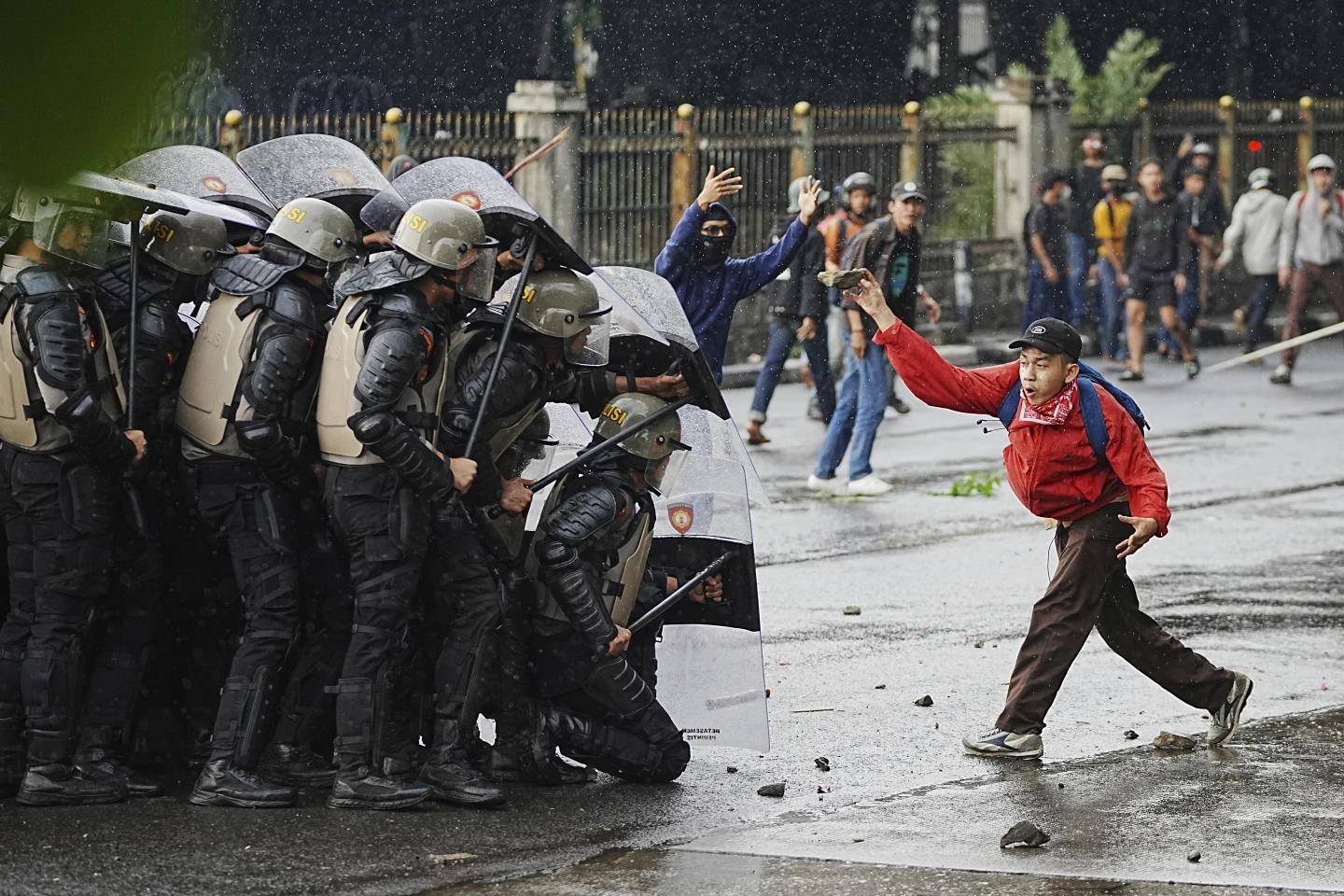Joaquim Magalhães de Castro
In an interview with the Fides news agency, Father Agustinus Purnama, a 70-year-old Indonesian priest and Superior General of the Missionaries of the Holy Family (MSF) in the province of Java, considers legitimate the expectations of young Indonesians, who are leading the current wave of rebellion spreading across different regions of the archipelago. They demand transparency, work, development, good politics, and a future. “The problem is that they are being exploited for other purposes”, concludes Father Purnama, who is nearing the end of his six-year term as Superior (2019-2025).
We will now see whether the government will heed and listen to these demands, given the wave of popular protests that swept the country in early September. The Indonesian priest recognizes an impulse dictated by an ethic of responsibility that addresses the entire nation and refers to Indonesia’s fundamental principles, Pancasila —a charter of five principles upon which the entire nation is based.
Among the issues addressed is unemployment. Indonesia has one of the highest youth unemployment rates in Asia. According to government data, nearly 20% of the more than 44 million Indonesians between the ages of 15 and 24 are unemployed, more than double the youth unemployment rate in neighboring countries such as Thailand, Vietnam, and Malaysia.
Young people harbor deep distrust of the government, a distrust embodied in a student-founded protest movement called “Indonesia Gelap” (‘Black Indonesia’), which is challenging the government’s plans to cut spending on public services. According to economists, the factors behind the high unemployment rate in Southeast Asia’s largest economy include structural problems such as labor market rigidities (which hinder hiring), low wages, and weak investment. One of the widespread risks is “modern slavery”, in which workers are victims of various types of exploitation. Indeed, it was the situation of economic inequality, exacerbated by corruption, that led to the demonstrations of recent weeks. Father Purnana believes that “all of politics, society, and even the Catholic Church are called to do their part to meet the expectations of young people”.
The crisis currently facing Indonesia has many facets. It could be said to be a combination of different crises: a moral crisis, a crisis of respect for the law and the rule of law; “there is a crisis of political leadership that is far removed from the interests and aspirations of the people”. This is the opinion of Bishop Maximilianus Regus, bishop of the newly founded Diocese of Labuan Bajo, in the western part of Flores Island, since June 2024, regarding the country’s current situation. This bishop, philosopher, and sociologist, who taught for many years at the Catholic University of Ruteng, points out that “the problems are not new, but for the past 25 years, after the fall of the Suharto regime, the Indonesian people have longed for improvements on several levels: economic, political, and social.” Instead, the people only see the growth of injustice and inequality, while the government raises taxes, the number of people in poverty grows, and the middle class also becomes impoverished. These problems were latent “under the ashes” and have now exploded. “In the current wave of protests”, the prelate observes, “young people and student movements play a fundamental role”. Young people have a “deep awareness” of the challenges they will face in the future, and they are the ones organizing and leading civil society. “On the other hand”, says Bishop Maximilianus Regus, “young people see their parents struggling to survive or reduced to poverty”.
Young people are fully aware that the main problems are corruption and injustice. And in a situation like this, “it is in everyone’s interest that a serious dialogue be initiated between the government and social movements”. Despite the violence and police repression, the bishop sees “no danger of militarization or an authoritarian turn”, because “democracy is deeply rooted, we have an attentive mass media, and a conscious society”. He therefore hopes that “the protesters demands will be taken into account by politicians for the good of the country”.
Bishop Regus, along with other bishops and prominent representatives of the Indonesian Catholic Church, welcomes the emergence of the forum of religious leaders, intellectuals, cultural figures, and civil society representatives called “Gerakan Nurani Bangsa” (National Conscience Movement), which also includes Catholic representatives. In an open letter, the forum calls on the government to listen to the ideas and suggestions of academics and experts who do not pursue personal interests, but who care about the well-being of Indonesia. The forum calls for respect for the fundamental value humanity’s mental health and listening to people, and calls for “ethical and empathetic leadership”. He lists as priorities police reform, measures for economic stability, the expansion of social services, and the reduction of political privileges.


 Follow
Follow


